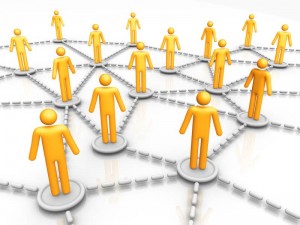Yesterday while working on a new seminar I’ll be offering1 about patient engagement, I met a new Twitter friend, Mark Harmel (@MarkHarmel), and we talked on the phone for a while. (For some reason my thoughts progress best when I’m in spoken dialog.)
Mark is a healthcare photographer, social media consultant and in 10 days he becomes a public health graduate student. Check out his awesome post about photographing Paris. He’s pretty new to all this “e” stuff, so I talked through my content with him, which helped me fit it to the timeline.
Overnight he emailed about the value of knowing some wonderful, caring doctors. Replying this morning, I had a thought about why patient social networks are so game-changing: they create a new source of value from existing resources. I wrote:
Yes, knowing some good caring doctors is terrific. Then, e-patients share who those docs are.
Having access to something great is one thing… finding what others have, or sharing your finds with others – that’s social networking in health.
In my speeches I often note that on my very first exchange with ACOR, the members told me the four docs in the northeast who offer the only treatment that sometimes cures my cancer. One happened to be the guy at my hospital to whom I was already being steered.
But most patients are never even told that treatment exists, because most hospitals don’t offer it. From a policy perspective, I say that’s wrong: to not tell patients of a treatment that might cure them??? Because you’d lose the business??
And from the patient perspective, it shows the real impact of social networking: at its best it can connect information with the people who need it. That’s increasing value, and that drives change.
The change we’re experiencing is real, people. The ability to create value in healthcare depends on information, and patients’ access to valid and useful information is changing forever. Part of our work in the Society for Participatory Medicine is
- to develop better and better methods of access
- to teach people to share, and the value of finding what others have shared
- to teach clinicians the legitimacy of patients seeking info online
- to develop methods everyone can use to do it wisely – to filter the gold from the garbage
All of this is intended to improve – to refine, if you will – the process by which we amplify the value of the information that’s out there. Families are in need, healthcare is under stress. As I said in my TEDx talk last month, Let Patients Help.
This seminar was listed as Project 4 in my March post on 2011 projects. A developmental version will be delivered for the first time on Monday afternoon, May 16, as a pre-conference workshop at the 14th annual Colloquium of the Institute for Clinical Systems Improvement and the IHI. Conference website here.
Image licensed from iStockPhoto, #6689731



As per usual, Dave puts it well. We in health care have much to learn to truly develop “participatory medicine.” But it will not only require significant change on the part of the health care system but a substantial willingness and interest on the part of patients to become more accountable for their health–when they’re outside the health care system walls.
I’m looking forward to spending 4 hours with Dave next Monday afternoon at the ICSI Colloquium in St. Paul, MN. It will be my job to harness his energy, and ensure he is able to convey his message to our audience. And then, who knows….what might come next.
See you soon, Dave.
Agreed, Gary! You don’t get to be uninvolved and call yourself “participatory” or “engaged”!
Two posts from e-patients more than two years ago: Physicians are coaches, patients are players” and Physicians as coaches, part 2: “Embrace knowledge symmetry”
Right on Dave – I think you will see this more as both sides of the marketplace start meeting online. (Granted this is a selfish prognostication on my part.)
-Conrad from Avvo